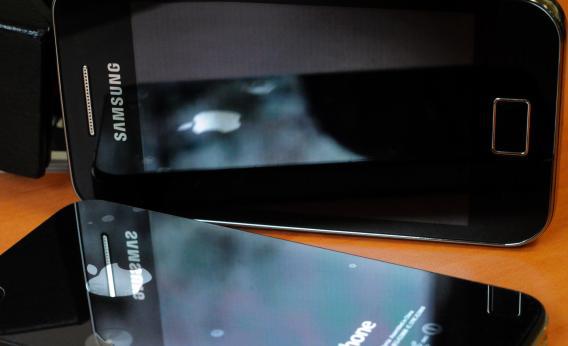Ever since Apple’s first iPhone revolutionized the mobile phone industry, Samsung has been playing catch-up. Adopting Google’s Android operating system, the South Korean conglomerate began cranking out a range of products that looked a lot like Apple’s, from the Galaxy smartphone to the iPad-ish Galaxy Tab.
The strategy worked: Samsung has not only caught up to Apple but surpassed it as the world’s largest smartphone maker, capturing 33 percent of the global market to Apple’s 17 percent in the second quarter of 2012. Not surprisingly, Apple has cried foul, alleging all sorts of patent infringements. Samsung, for its part, has pointed out that Apple’s smartphones rely on some technology that it had patented—also not surprising, given that Samsung has been making phones since before the iPhone was a twinkle in Steve Jobs’ eye.
Here’s what is surprising, especially to people not familiar with the United States’ unique patent law system: the people who get to sort out this legal mess. After two years of bickering and failing to settle, Apple and Samsung have taken their case to the legal body least qualified to understand, let alone adjudicate, their competing claims: a jury.
Opening statements are scheduled today in a federal courthouse in San Jose where I once covered the criminal trial of a homeless man accused of burning down a Walgreens. Under the eye of a federal district court judge, both sides’ lawyers will face the task of dumbing down their highly technical arguments to the point where even you and I could understand them—because the jurors know no more about patent law or the inner workings of smartphones than you or me.
The United States is one of the few countries in the world that sends patent cases to jury trials. Even here, it happens rarely, because companies are too risk-averse to entrust the fate of billions of dollars’ worth of intellectual property to a randomly selected squad of average joes. That Apple and Samsung have reached this point shows just how big this case is. So much is at stake that neither company has been willing to back down and reach a rational compromise.
Apple is seeking a record $2.5 billion in damages. But more than that it wants Samsung’s products kept off the shelves, so it can regain its market dominance. (It already won an injunction against U.S. sales of the Galaxy Tab 10.1.) And a victory here wouldn’t just be a blow to Samsung but a blow to Google, whose operating system also underpins many other Apple rivals’ devices.
Apple’s strategy will be to paint Samsung as a company desperately copying its groundbreaking devices—a narrative that will be helped by evidence such as a 2010 internal Samsung email noting that Google was requesting design changes to keep its Galaxy tab from looking too similar to the iPad. Samsung’s response will be that, to some extent, all mobile devices look alike by necessity—and that Apple’s innovations are no more special than those of the many other companies that paved the way for the iPhone, including Samsung itself.
As U.S. District Court Judge Lucy Koh told the jurors on Monday: “This will be a very interesting case.”
